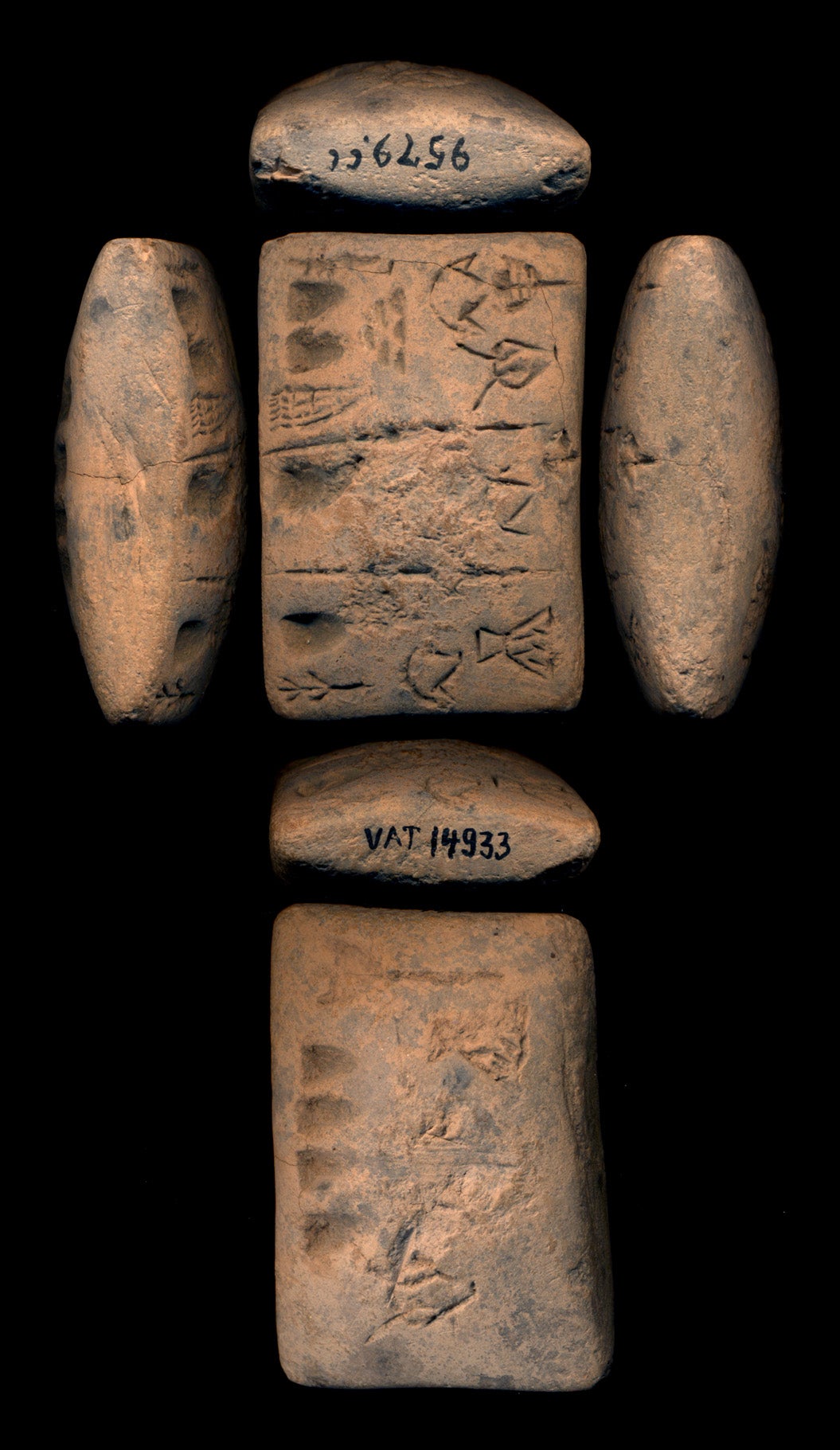Researchers have made another major stride in understanding humanity’s origins of writing.
In Mesopotamia, the birthplace of civilization, the earliest known writing system started around 3,000 BCE.
Developed by the Sumerians and written on clay tablets, the first cuneiform is largely sourced back to the urban city of Uruk, or modern day Iraq. Thousands of tablets have since been unearthed, as well as small stone cylinder seals that were often used as signatures.
Now, academics at Italy’s University of Bologna have identified links between the designs engraved on these 6,000-year-old cylinders and pictographs in proto-cuneiform script – which came before cuneiform – that emerged in Uruk.
“We wanted to see whether the traditional explanation of how writing was born in Mesopotamia in Uruk in the fourth millennium is really valid,” Professor Silvia Ferrara, the lead researcher, told The Independent on Monday.
The work was published Tuesday in the journal Antiquity.
Ferrara said that the findings add to previous research, which found that tokens were the devices that led to the possibility of writing.
The clay tokens came in multiple sizes, and are believed to have been shaped like the commodities of daily life.
Ferrara said they are geometric and don’t have iconic imagery like these seals whereas the signs of the proto-cuneiform writing system start off as being being very iconographic: “They resemble things.”
“We realized that a number of images on the cylinder seals actually do resemble signs of the proto-cuneiform writing system that were used a couple of centuries later,” she said.
“Cylinder seals that are part of a network of exchanges between Uruk and other cities in its precinct ... were a responsible mechanism for the creation of writing.”
These findings mark the first time there’s been a link between the cylinder seal system and the invention of writing. The seals were also used as an accounting system, tracking various agricultural and textile goods.
Co-authors and research fellows Kathryn Kelley and Mattia Cartolano worked alongside Ferrara. Kelley explained that they wanted to understand what encouraged people to leap into a writing system.
“We wanted to try to establish the other kind of relationship from seals, originally prehistoric sealing technology, into writing,” she said. “And, that’s the link. The crucial link that we’re presenting in the paper is a first concrete set of a few signs where we can explicitly say: these are there before writing and they’re used in similar ways and they have some sort of semantic association that is carried over into the invention of writing.”

Ferrara said that the researchers are not saying that the seals are the only source for writing. The findings give nuance to human understanding of the practice’s origins.
“But, we are showing some very concrete evidence that pre-literate image traditions, and in this case seals, are part of the stimulus for moving the information technology in a different direction,” she said.
The four original inventions of writing are in Mesopotamia, Egypt, China, and the South American Mayan culture. There may, however, be another source. There are cases in modern India and Pakistan and Easter Island. Both systems remain undeciphered.
“And, for instance, with the case of Easter Island, we actually have more than indirect evidence right now that leads us to think that this is in fact the fifth invention of writing in the world,” Ferrara said.







